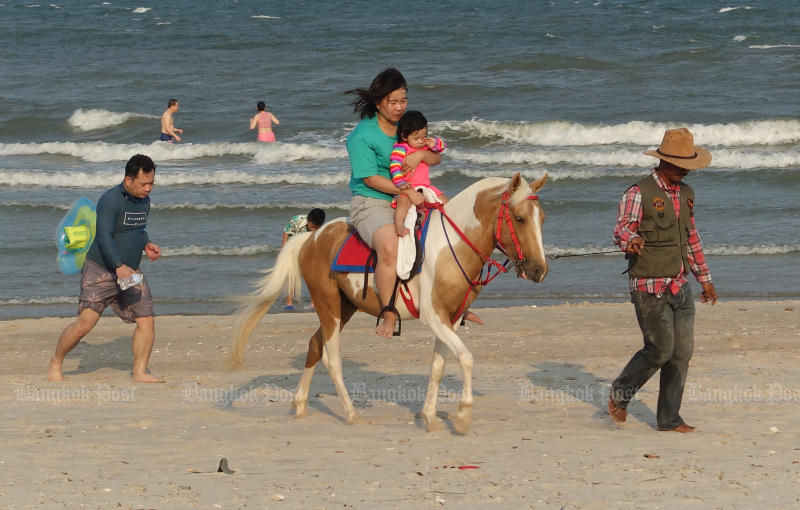
Thailand has not been spared the political uncertainty that usually comes with elections, yet foreign tourists returning by the millions this year are counted on to help shield Southeast Asia’s second-largest economy.
The influx of visitors — totalling 6.5 million in the first quarter of 2023 compared with 498,000 a year ago — is aiding greater business and consumer activity in Thailand. On track to hit the government’s target of hosting three times more foreign guests this year from 10 million in 2022, tourism is seen as an anchor amid the political noise, even as the exports growth-engine sputters.
“Tourism will be the key pillar supporting our growth this year,” said Thitima Chucherd, an economist at Bangkok-based Siam Commercial Bank (SCB). “In our worst-case scenario, government spending, consumption and investment may be affected by longer-than-expected government formation. But tourism will stay out of the political impact.”
A bedrock of Thailand’s economy before the Covid-19 pandemic, tourism is reclaiming its key role as investors are waiting and watching days after a national vote on Sunday. While pro-democracy parties secured the most number of seats in the election to Thailand’s 500-member House of Representatives, the support of the 250 senators appointed by the military will play a crucial role in who becomes prime minister.
Should the Senate oppose Move Forward Party leader Pita Limjaroenrat for prime minister, government formation can be delayed for months, which in turn could set back the budget for the fiscal year starting October and hurt state spending. The secretary-general of Thailand’s statistic agency Danucha Pichayanan said Monday after reporting faster first-quarter economic growth that the budget should not be delayed past the first three months of 2024.
Gross domestic product will grow 3.6% this year, up from 2.6% in 2022, according to the median estimate in a Bloomberg survey. That will make Thailand the only Southeast Asian economy to experience faster expansion every year since the pandemic-induced downturn in 2020.
Still, any escalation in political uncertainly could hamper the influx of visitors that’s getting closer to returning to the 40-million count in 2019, supported by China’s reopening late last year. Visitors from the mainland accounted for almost a third of Thailand’s foreign guests before the coronavirus pandemic.
“If political tensions spill over onto the streets, growth will be adversely impacted,” said Krystal Tan, an economist at Australia & New Zealand Banking Group. “Tourists are notably sensitive to political instability, with arrival growth slumping during such periods in the past two decades.”







